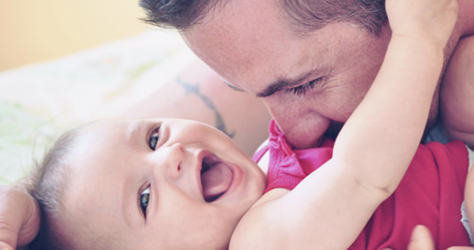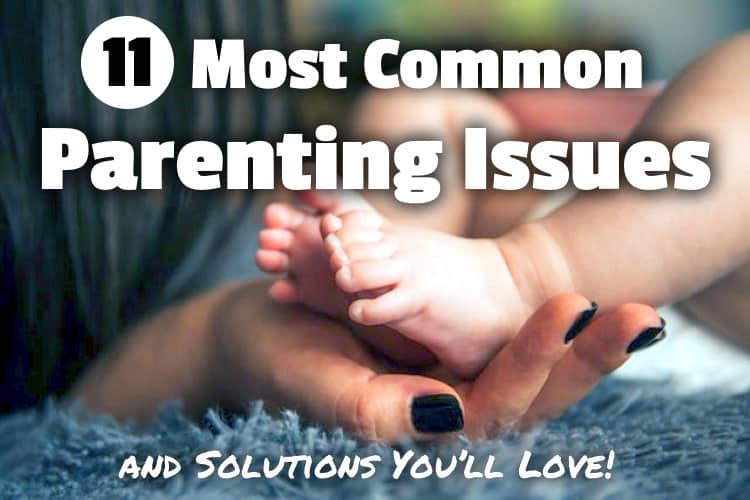
Parents who are strict with their children don't allow them to make mistakes. They expect their children do well in school and other activities. They are not willing to accept failure and won't let their children leave home for any extended time. They are also often obsessive about curfew hours.
Autoritarian parenting
An example of autoritarian parenting is when parents enforce strict rules and punish their children for breaking them. These parents don't allow their children to make choices and they do not encourage emotional bonds with them. If they catch their children taking something, they might whip them. And they might not let their kids talk to their parents about it. They are often not able to appreciate their children's achievements and place unrealistic expectations on them.
The opposite of authoritarian parenting is stern parenting. It's a parenting style in which parents don't allow their children to make decisions but demand that they obey them. They don't seek constructive feedback from children and see any attempts to reason with them a challenge. Parents control their children by punishing them severely, often with fear and intimidation. This type of parenting could lead to a child who is too focused and cannot think outside the box.

Punishment for minor mistakes
Parents who punish their children for making mistakes often cause psychological damage to the child. It also discourages emotional development, and may make a child more self-centered. It can also make children more dishonest, as they tend to feel that they have no other option than to lie or cheat in order to avoid punishment.
Some parents also punish their children for minor errors by neglecting them. This doesn't mean the parent isn’t concerned about the child. While many parents are lenient with their children, a strict parent can be harsh when enforcing rules. If a child spills on the floor or makes a mistake, it could lead to trouble. A strict home will only use punishment if a child violates a rule set by the parent.
Communication is not two-way
Children's development can be affected by a lack of communication between strict parents. This type of parenting tends to push children to act out and change their thought processes. Children can feel low self-esteem, and even lie to others. Likewise, children raised by strict parents are less likely to be outgoing or to make friends. They tend to be strict and always follow orders.
While one-way communication does have its place but can sometimes be detrimental to children, too much of it could prove to be disruptive. The best approach is to ensure parents and teachers have regular communication. If a child is struggling in school, the teacher can contact the parents and create a plan for improvement.

Effects on children
An authoritarian parent can pose a problem for children. An authoritarian parent can cause a child to feel inferior and be constantly criticised. These children may also develop a negative opinion of authority and be more at risk for becoming delinquents if they are raised under such conditions. Moreover, children raised under strict parenting may not be well-regulated emotionally and lack social skills.
Stiff parenting teaches children how to be obedient to their parents instead of learning how to think for themselves. This prevents children from learning self-regulation and self-confidence. A strict home can also cause physical symptoms.
FAQ
What parenting style is the most popular in America today?
The traditional family model is not as popular today as it was 50 years ago because families are changing. It is becoming less common for parents to be involved in the raising of children. They want to spend time on themselves instead of spending time with their kids. This is helicopter parenting. It's when parents hover over their kids 24/7. They don't let them do anything without supervision. They make sure that they eat well, exercise, and get enough sleep. This kind of parenting can create a lot of stress both for the kids and their parents. The kids feel like they're missing out, while the parents feel guilty that they're not there every day.
The problem is that this type of parenting doesn't teach kids how to take care of themselves. This type of parenting makes them dependent on adults for everything. Instead of teaching independence, parents teach dependence. They show their children that success is dependent on adult help. If they fail, then they blame themselves.
This causes children to feel insecure and worthless. Because they failed to live up to their expectations, they believe they are failing. Because they didn't learn how to cope with failure, they lack self-confidence.
This type of parenting is also less popular because there are fewer families with two parents. If both parents work, it can be difficult for them to be available for their children. So many parents end up raising their kids alone.
Nowadays, parents want their kids to be happy and healthy. Parents don't want children worrying about how they are sleeping, eating, or exercising. They want to live their own lives. They have hired tutors, nannies or other caregivers so they can focus on their own lives.
They don't want to micromanage every aspect of their child's life. They don’t want their children to think that they can make no mistakes. They want them to learn and make mistakes again.
What is positive parenting?
Positive parenting styles encourage children to become happy, well-adjusted adults through positive and constructive behavior towards others.
They teach children how they can deal with conflict and stress, how to resolve conflicts peacefully and how to deal with disappointment.
Positive parenting also helps children learn self-discipline and responsibility. It teaches them how to make decisions and solve problems on their own.
They feel encouraged to take risks and explore new possibilities. They learn to work hard and succeed in life.
What is an example of positive parenting?
Positive parenting teaches children the right behavior by setting high standards and expecting them not to fail. This includes showing love and affection to them, and supporting them when they are struggling.
Positive parenting encourages children and their families to make the right decisions for themselves, rather than relying on others. This helps children become independent adults and not just follow what others tell them.
Positive parenting means having fun with your children and encouraging them to find the joy in their lives.
Children trust their parents when they see them as caring about them and treating them like people, not objects. Children are less likely than their parents to get in trouble, and they become happier and more healthy.
Is it more important to be strict with your child?
I believe you should strive to be a strict mother. Children need to learn how they behave. They should also be disciplined if they behave badly.
It's important that they learn proper behaviour. You don’t want them to be wild or they could hurt another person.
You'll find it more difficult to be strict than to be permissive. They will rebel against you if you allow them too much freedom.
If you give them too much freedom they won't be able to control their behavior.
Being a strict parent can be hard, but I believe it's well worth it.
Is it really so difficult to raise a teenager?
While it is not always easy, it is important to try to understand them. You must allow them the space to grow and to learn on their own. They are special people who have their own ideas and opinions. And they are growing into adults. Be patient and understanding.
They will make errors and sometimes act badly. It's part of living. It's not always easy to predict what your children will do next.
Be open-minded, and listen attentively when they talk to your. Do not judge them. Try to see the world through their eyes.
And most importantly, love them unconditionally. By doing so, they will grow up to be better people.
Is permissive parenting good?
Although they can be a problem, parents who are too permissive with their children should not be considered bad. Children learn from both good and bad experiences. They need to be open to accepting responsibility for what happens to their children when they fail to discipline them appropriately.
They should also be prepared to take action if their child misbehaves.
Being a parent is your best job. You should set boundaries and then enforce them. You must always make sure that you are consistent.
These are the rules to help raise healthy, happy adults who respect others.
Statistics
- Students from authoritative families were likelier to say that their parents–not their peers–would influence their decisions (Bednar and Fisher 2003). (parentingscience.com)
- Dr. Phil says, “Children should be able to predict with absolute certainty, what will happen as a result of their behavior, 100% of the time.” (parenting.kars4kids.org)
External Links
How To
What does it mean to be a positive parent?
Positive parenting involves helping children be happy and healthy. Parents must provide their children with the right kind of support and encouragement.
Positive parenting involves teaching children problem-solving, decision-making, conflict resolution, communication, empathy, cooperation, initiative, independence, resilience, self-esteem, motivation, perseverance, and creativity.
Parents should encourage their children to acquire these qualities.
Positive parenting can be achieved by the following activities:
-
Spend quality time together.
-
Help your children practice social skills.
-
Please provide constructive feedback.
-
Teach your child about values and morals.
-
Model appropriate behavior.
-
Give your children the opportunity to succeed.
-
Be a role model for your children.
-
You can share your knowledge and experiences to your children.
-
For your children, create exciting and fun times.
-
Make sure your children understand the importance of doing chores around the house.
-
Give your children options.
-
Praise your children when they do something well.
-
Give praise to your children for trying new things.
-
Respect your children's privacy.
-
Tell your children the truth.
-
Treat your children like people.
-
Do your best to be a role model.
-
Talk to your kids in a way they can understand and encourage you to talk back.
-
Avoid harsh language.
-
Set clear limits.
-
Use rewards and consequences effectively.
-
You should explain why you want your child to behave in this way.